Professional Mobile Radio (PMR) training courses offered by Wray Castle Ltd are designed to equip professionals in the telecommunications industry with the knowledge and skills needed to excel in the field of critical communications. PMR systems are essential for organizations that require reliable and secure communication solutions, such as emergency services, transportation, utilities, and public safety agencies.
Our PMR training courses cover a wide range of topics, including the fundamentals of PMR technology, system design and implementation, network planning, optimization, and troubleshooting. Participants will learn about various PMR standards, such as TETRA (Terrestrial Trunked Radio) and P25 (Project 25), as well as the latest advancements in the field, including the integration of broadband technologies with traditional PMR systems.
Our expert instructors have years of experience in the telecommunications industry and are dedicated to providing engaging and interactive training sessions that cater to the needs of professionals at all levels. Whether you are new to PMR technology or looking to enhance your existing skills, our courses offer a comprehensive learning experience that will help you stay ahead in this rapidly evolving industry.
By enrolling in our PMR training courses, you will gain practical knowledge that can be applied directly to your work, helping you to improve the efficiency and effectiveness of your organization's communication systems. Our courses are designed to be flexible and convenient, with options for live virtual sessions, self-paced learning, and on-demand resources available through our Wray Castle Hub platform.
Join the thousands of professionals who have benefited from our industry-leading training programs and take your career in critical communications to the next level with Wray Castle Ltd. Invest in your professional development today and become a certified PMR expert with our specialized training courses.
IP Engineering Certified Training Courses
-

Wray Castle Hub (12 Month Subscription)
Annual Telecoms Training Subscription Package with Unlimited access to 500+ hours of key training material Empower your professional development by building your knowledge of key technology and business topics within the telecoms industry. Unlimited access to future new courses that will cover the latest technology developments as they are added to Hub throughout your 12-month subscription period. Endlessly flexible and applicable to any role within the telecoms industry a subscription to Wray Castle Hub is your ultimate learning resource. You can choose to follow one of our suggested learning pathways, build your own or dip into the learning material module by module. The Wray Castle Hub is also available as an 6-Month Subscription for £945. Learn more here.
£1,400.00
-

Wray Castle Industry Primers Collection
The Wray Castle Industry Primer collection gives you unlimited access to our growing library of short, focused online training courses. Get upskilled on your chosen topics in just 3 hours with our collection of new short online primers. Our primers cover the key technology and business topics shaping the industry today and tomorrow. You'll benefit from videos, illustrated course books, dedicated tutor support, and regular assessments and earn digital badges to showcase your achievements. A subscription gives you access to all the existing primers below plus all future primers as and when they are published, so you'll always stay ahead of the latest developments across the industry.
£450.00
-

Wray Castle Hub (6 Month Subscription)
6-Month Telecoms Training Subscription Package with Unlimited access to 500+ hours of key training material Empower your professional development by building your knowledge of key technology and business topics within the telecoms industry. Unlimited access to future new courses that will cover the latest technology developments as they are added to Hub throughout your 12-month subscription period. Endlessly flexible and applicable to any role within the telecoms industry a subscription to Wray Castle Hub is your ultimate learning resource. You can choose to follow one of our suggested learning pathways, build your own or dip into the learning material module by module. The Wray Castle Hub is also available as an Annual Subscription for £1,400. Learn more here.
£945.00
-
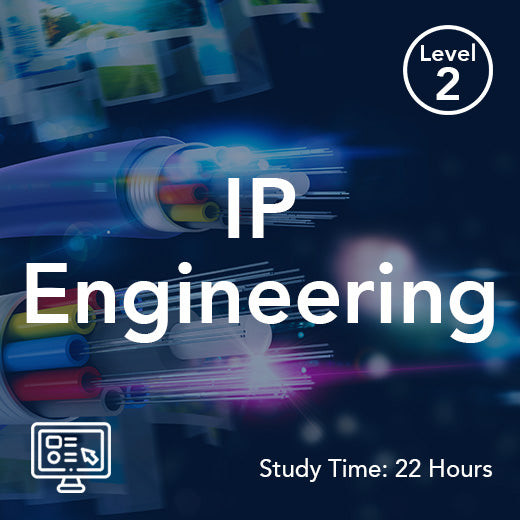
IP Engineering (On-Demand)
This comprehensive IP Engineering on Demand course provides a deep dive into Internet Protocol networks, covering engineering techniques, applications, protocols, and switching methods. Participants will gain the knowledge and skills needed to confidently navigate the IP environment, with topics including QoS, security, VPNs, and Multimedia over IP. Ideal for those looking to understand how IP networks are designed and implemented, this course is perfect for individuals seeking to enhance their expertise in this critical area. Participants in this course should have some prior knowledge or experience with packet-switched data network operation and Internet technology. The course covers a range of topic areas, including the background of the Internet and ISPs, the Data Link, IP, Transport, and Application layers, IPv6, DNS, MPLS, access services, routing in IP networks, OSPF, BGP4, IP QoS technologies, security engineering, IP VPNs, and IP multimedia services. By the end of the 22-hour course, participants will have a solid understanding of IP networks and the skills to work effectively in this dynamic environment. Who would benefit Those needing to understand how IP networks are designed and implemented. Prerequisites Some knowledge or experience of packet-switched data network operation and Internet technology is beneficial. Topic Areas Include: Background to the Internet and ISPs The Data Link, IP, Transport and Application layers IPv6 The Domain Name System (DNS) Introduction to MPLS Access services E-mail services and web hosting Name servers and heterogeneous networks Peering Routing in IP networks Overview of OSPF and BGP4 IP QoS technologies Security engineering IP VPNs IP multimedia services
£750.00
-
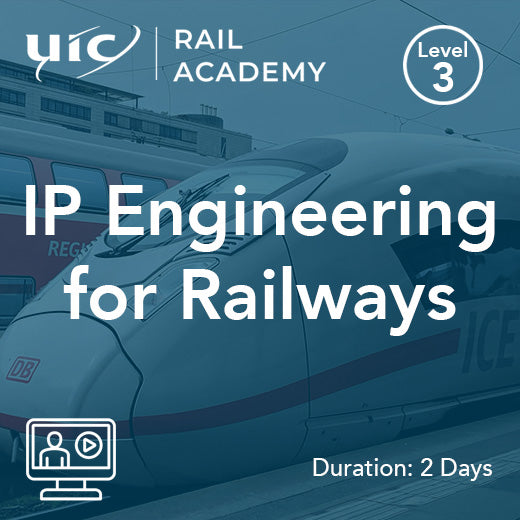
IP Engineering for Railways
IP Engineering for Railways delivers a detailed overview of Internet Protocol networks. Delivering an understanding of Engineering techniques, as well as applications, protocols and switching methods, it enables delegates to work confidently in the IP environment. Other topics explored include QoS, security, VPNS and Multimedia over IP. With the emergence of FRMCS our 5G Rail portfolio addresses the technical requirements of FRMCS. Who would benefit Those needing to understand how IP networks are designed and implemented. Prerequisites Some knowledge or experience of packet-switched data network operation and Internet technology is beneficial. Topic Areas Include Background to the Internet and ISPs The Data Link, IP, Transport and Application layers IPv6 The Domain Name System (DNS) Introduction to MPLS Access services E-mail services and web hosting Name servers Service Provider Network architectures Peering Routing in IP networks Overview of OSPF and BGP4 IP QoS technologies Security engineering IP VPNs IP multimedia services
POA: Private Course
-

Wray Castle Learning Account
Upskill your workforce with flexible, scalable training solutions The Wray Castle Learning Account offers a flexible, scalable training solution for organizations, enabling upfront budgeting, tailored programs, and comprehensive reporting. Key Features Customised Programmes - Work directly with us to build training programmes tailored to your organization's needs, ensuring budget safety and scalable delivery. Wide Course Variety - Access live sessions, live virtual training, e-learning modules, private team workshops, and expert consultancy services. Upfront Planning - Allocate funds in advance, plan training strategically, align with organizational goals, and gain comprehensive reporting on spend and consumption. Programme Benefits Budget Control & Safety - Maintain complete oversight of training expenditure with upfront allocation. Strategic Alignment - Plan training initiatives with competency assessment options to meet organizational goals. Additional Resources - Access webinars, primers, and supplementary learning materials. Visibility & Reporting - Comprehensive tracking and reporting on training consumption and ROI. Broad Topic Coverage - Wide range of subject areas to address diverse training needs. Simplified Invoicing - VAT invoicing and payment via Purchase Order for streamlined procurement. The Wray Castle Learning Account is ideal for: Organizations seeking to centralize training and budgets. Teams with predictable training spend looking for simplified invoicing and reporting. Organizations requiring scalable training solutions for growing teams L&D and Training Managers who need to demonstrate clear ROI. Ready to transform your training contact us today?
POA: Private Course
-
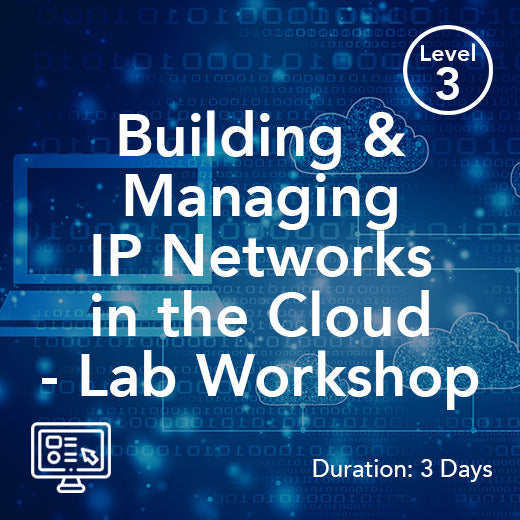
Building and Managing IP Networks in the Cloud - Lab Workshop
This course provides a practical introduction to building and managing IP networks in the cloud. Using Amazon Web Services (AWS) and Infrastructure as Code techniques with Terraform, participants will provision and configure a dedicated lab environment. The course develops skills in IP addressing, subnetting, and routing protocols, applied to Linux-based routers and hosts running on EC2 instances. With a strong focus on hands-on learning, it guides delegates through cloud networking fundamentals, dynamic routing (OSPF, BGP), and troubleshooting end-to-end connectivity. By the end of the workshop, participants will have confidence in deploying, configuring, and testing networking environments in the cloud. Who Would Benefit Network engineers and system administrators seeking practical experience with AWS, EC2, Terraform, and Infrastructure as Code. DevOps and IT professionals who want to build confidence in deploying and troubleshooting cloud-based IP networks. Telecoms operators and engineers aiming to understand how cloud-hosted IP networking and routing protocols can support next-generation telecom systems. Regulators and government agencies who require insight into how cloud environments operate for testing, validation, and compliance. Utilities, transport, and critical communications organisations (e.g. energy, rail, emergency services) modernising their telecoms systems and exploring cloud-based lab and test environments. Enterprise network teams in sectors such as finance, defence, and public safety, looking to integrate cloud networking into their infrastructure planning. Course Contents Cloud, Virtualization, and the Lab Environment IP Addressing and Subnetting IP Networking and Routing Protocols Conclusion & Next Steps Lab Features & Benefits Through a combination of hands-on experience and guided instruction our virtual labs allow users to explore the network. Our labs feature: A simulated network -Provides hands-on experience and reinforces theoretical knowledge. Guided exercises for signalling scenarios - makes learning and applying new concepts straightforward. Cloud-based lab - available 24/7 on any connected device. Individual dedicate server - Ensures that your work is kept private and secure. Ongoing trainer support - ensures you get expert advice when needed. Full integration with Wray Castles training programmes - allows you to build bespoke learning pathways for specialist teams across your organisation.
£2,660.00
-
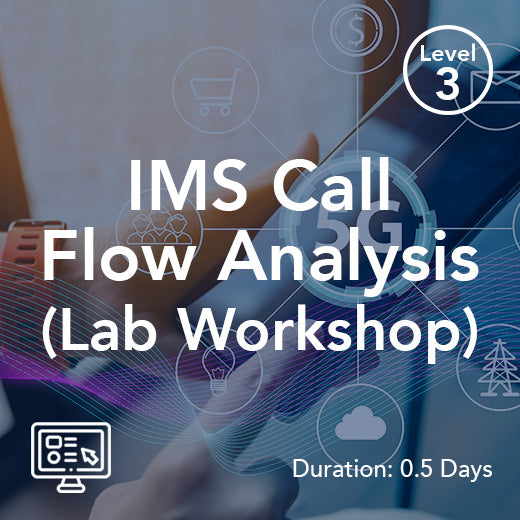
IMS Call Flow Analysis (Lab Workshop)
Examine details of IMS Call Flow Analysis with focuses on IMS Registration and Invitation procedures with our 1/2-Day Virtual Lab. The cloud-based lab provides participants with access to a fully emulated 5G System environment. Experiment with the configurations for various Network Functions within the 5G Core Network and build customized settings for signalling scenarios that will enable users to develop greater insight in to the operation of the 5G System. IMS Call Flow Analysis Focuses on IMS Registration and Invitation procedures includes: SIP routing within the IMS domain Detailed information about SDP for IMS Session setup Lab Features & Benefits Through a combination of hands-on experience and guided instruction our virtual labs allow users to explore signalling procedures in the 5G system. Our labs feature: A simulated 5G network - Provides hands-on experience and reinforces theoretical knowledge. Guided exercises for signalling scenarios - makes learning and applying new concepts straightforward. Wireshark (pcap) output files – detailed output files provide deep system insight. Cloud-based lab - available 24/7 on any connected device. Individual dedicate server - Ensures that your work is kept private and secure. Ongoing trainer support - ensures you get expert advice when needed. Full integration with Wray Castles training programmes - allows you to build bespoke learning pathways for specialist teams across your organisation. You can find more information on our labs and arranges a demo here.
POA: Private Course
-
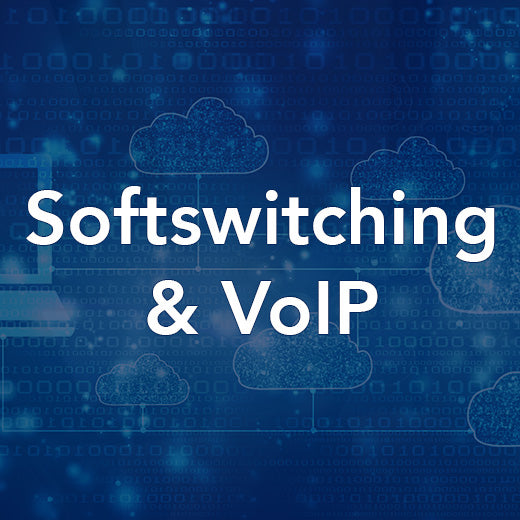
Softswitching and VoIP
Course Code: IP2001 Course Summary Covering Voice over IP (VoIP) services in fixed and mobile, Next Generation Networks (NGNs) and all IP-based networks, the course also includes VoIP concepts, supporting architectures, interworking with circuit-switched networks together with QoS issues. Who would benefit Those requiring an overview of how voice may be integrated into IP networks. Prerequisites Familiarity with IP and intranet operation is beneficial. This can be obtained from attendance on the TCP/IP (QS2501) course. Topic Areas Include Supporting VoIP in fixed and mobile NGNs Protocols for VoIP Voice quality, quality measurements and quality reports Session Initiation Protocol (SIP) Session Description Protocol (SDP) SIP Peer-to-Peer operation SIP architecture User Agent clients and servers Registrar, Proxy and Redirect Servers Back-to-Back User Agents SIP Requests, Responses and Header analysis Demonstrations with analysis of Registration/Authentication and VoIP session-handling procedures ENUM, NAT, STUN and TURN H.248/Megaco Includes practical demonstrations.
POA: Private Course
-
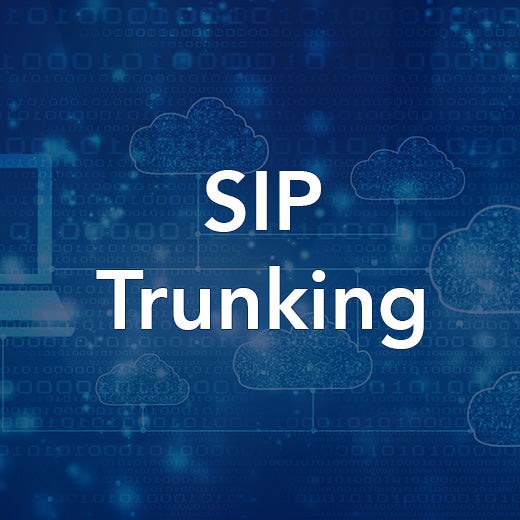
SIP Trunking
This half-day course uses real business cases throughout to discuss the lead up to the employment of SIP Trunking. It includes an overview of carrier scenarios in consideration of all IP infrastructures; a brief look at the standards and a detailed discussion of design considerations, including authentication; transcoding; session management; SIP interworking; pitfalls and security considerations. SIP Trunking is becoming increasingly popular in the telecommunications industry, and understanding its importance and implementation is crucial for engineers and professionals in the field. Wray Castle's half-day training course, with 1 live online session, delves into the intricacies of SIP Trunking through real business cases. From discussing carrier scenarios to exploring technical standards and design considerations, this course provides a comprehensive overview of SIP Trunking. Engineers looking to enhance their knowledge of SIP Trunking and its market forces will benefit greatly from this course. With a focus on SIP Connect standards and design options from a carrier/telco perspective, attendees will gain valuable insights into the drivers behind the growing use of SIP Trunking. While there are no specific prerequisites for this course, a basic understanding of SIP and a keen interest in telecommunications technology are recommended for optimal learning outcomes. Don't miss this opportunity to expand your expertise in SIP Trunking with Wray Castle's specialized training course. Who would benefit This course is for engineers who wish to understand the market forces behind the growing use of SIP Trunking, explained through real-life examples. Attendees should also have an interest in the standard governing SIP Trunking – SIP Connect, as well as the design options available from a carrier/telco’s perspective. Prerequisites Although there are no specific prerequisites for this course, delegates should have a basic understanding of SIP and a keen interest in understanding the drivers behind SIP Trunking. Topic Areas Include Why SIP trunking? Customer scenarios Carrier scenarios Technical Standards Design options
POA: Private Course
-
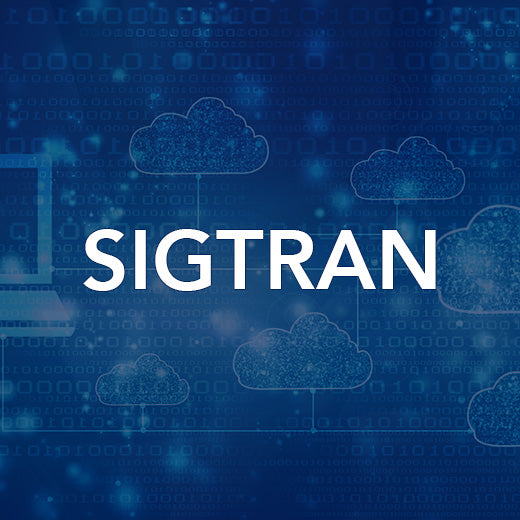
SIGTRAN
The drive towards all-IP networking necessitates the transport of SS7 protocols over an IP domain. This course provides a thorough explanation of how this is achieved using the SIGTRAN ‘toolkit’. Our SIGTRAN training course is designed to provide a comprehensive understanding of how SS7 protocols are transported over IP networks using the SIGTRAN toolkit. As the industry moves towards all-IP networking, this course is essential for individuals who need to grasp the concept of SS7 and the available solutions for transporting SS7 signalling over IP-based networks. Participants will benefit from learning about various topic areas including the importance of SIGTRAN, potential SS7 and IP interworking scenarios, SIGTRAN protocols, SCTP architecture and operation, MTP2 Peer-to-Peer Adaptation (M2PA) layer, MTP3 User Adaptation (M3UA) layer, and more. With a focus on practical applications, attendees will also gain hands-on experience in analyzing SIGTRAN operation using Wireshark. Whether you are a telecommunications professional looking to enhance your skills or a network engineer seeking to understand the complexities of SS7 signalling over IP networks, our SIGTRAN training course is the ideal choice for you. Who would benefit Those requiring an understanding of the need for SS7 and the solutions available for transporting SS7 signalling over IP-based networks. Prerequisites Familiarity with the PSTN architecture and SS7 signalling protocols, particularly MTP and SCCP, together with some knowledge of the TCP/IP protocol suite. Topic Areas Include Why SIGTRAN? Potential SS7 and IP interworking scenarios SIGTRAN protocols SIGTRAN in circuit-related and non-circuit-related signalling scenarios Stream Control Transmission Protocol (SCTP) SCTP architecture, operation, procedures and terminology MTP2 Peer-to-Peer Adaptation (M2PA) layer MTP3 User Adaptation (M3UA) layer MTP2 User Adaptation (M2UA) layer SCCP User Adaptation (SUA) layer Adaptation layer architecture, operations, procedures and resilience models Analysis of SIGTRAN operation using Wireshark
POA: Private Course
-
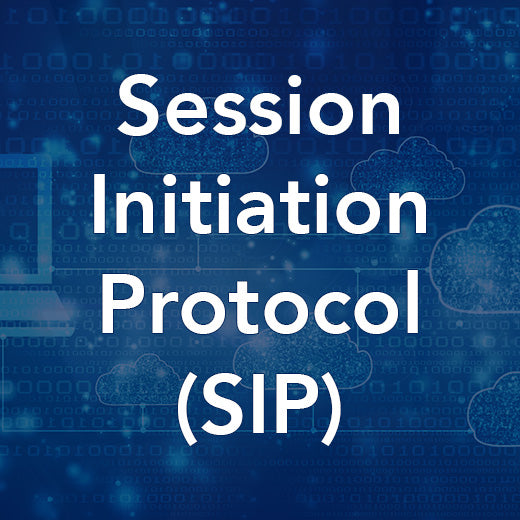
Session Initiation Protocol (SIP)
Our Session Initiation Protocol (SIP) training course offers a comprehensive understanding of SIP, Session Description Protocol (SDP), and Real-time Transport Protocol (RTP) and their crucial roles in establishing multimedia communications over IP-based networks. This 1-day course delves into SIP architectures, various SIP server types, and the intricate functions of SIP, SDP, and RTP in multimedia communication setups. Ideal for individuals seeking an in-depth comprehension of SIP and related protocols, this course covers essential topics such as SIP requests and responses, SIP user agents, dialogues, transactions, SIP architecture, operation procedures, SIP URIs, Tel URIs, and more. Participants will also explore SIP registration and session control, SIP and SDP messages, header fields, routing techniques, SIP server roles (Proxy, Redirect, B2BUA, Forking), SDP offer/answer model, interworking with the PSTN, and practical case studies using Wireshark analysis. Enhance your knowledge of SIP and related protocols with our expert-led training sessions, designed to equip you with the skills and insights needed to navigate the complexities of multimedia communications over IP networks. Join us for this intensive course and gain a competitive edge in the ever-evolving world of telecommunications. Who would benefit Those requiring a detailed understanding of the operation of the SIP and related protocols. Prerequisites A basic understanding of IP, UDP and TCP is an advantage. Topic Areas Include The role of SIP, SDP and RTP in multimedia communications Locating users in a SIP environment SIP requests and responses SIP user agents, dialogues and transactions SIP architecture, operation and procedures SIP URIs and Tel URIs Analysis of SIP registration and session control Analysis of SIP and SDP messages and header fields Request and response routing techniques Route and record route headers The roles and functions of SIP Servers: Proxy, Redirect, B2BUA and Forking SDP offer/answer model SIP-I and interworking with the PSTN Registration and session establishment Case studies using Wireshark analysis
POA: Private Course
-
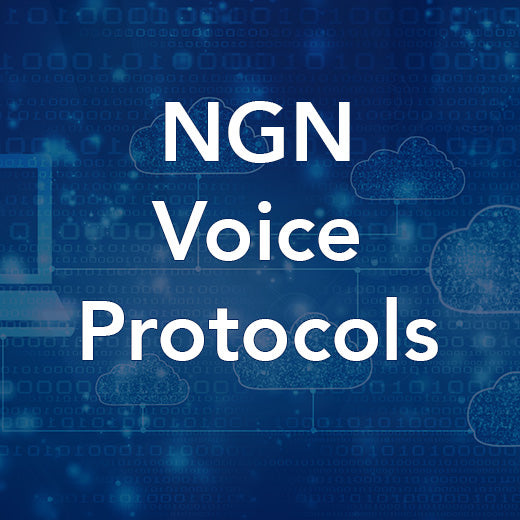
NGN Voice Protocols
Course Code: TY1202 Course Summary This course is intended for experienced telecoms engineers that wish to understand the workings of the protocols that are commonly used within Next Generation Networks (NGNs). The course takes a detailed look at real time signalling and transport protocols; it also looks at the protocols used to support legacy devices in the access and core network signalling such as POTS, ISDN and SS7. The course also looks in detail at the protocols supporting the new gateway devices. The course is backed up by an extensive set of exercises and the use of Wireshark. Who would benefit Those requiring a comprehensive understanding of the protocols used in an NGN for the support of voice services. Prerequisites A good understanding of legacy telecommunications networks, plus an understanding of IP networks and signal flows used in support of voice-related services. Topic Areas Include IP convergence Telecoms convergence and NGNs Telecoms (IP) scenarios Real time protocols SIP, RTP and RTCP H.323 call scenario The 3GPP IP Multimedia Subsystem The IMS registration process The IMS call signalling Softswitching architecture and protocols SIGTRAN in the access in support of POTS and ISDN SIGTRAN in the core in support of SS7 H.248 Megaco SIP-I Includes practical signalling exercises.
POA: Private Course
-
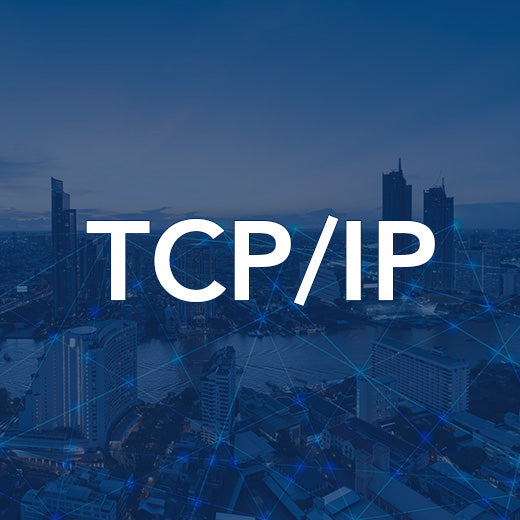
TCP/IP
Course Code: QS2501 Course Summary Knowledge of TCP/IP and its operation has become a fundamental requirement for anyone involved in IP networks. This detailed and exciting course takes delegates through TCP/IP principles, applications and protocols, enabling them to work confidently in this changing environment. Who would benefit This course is aimed at engineers who are looking to get started in TCP/IP family of protocols. The course is designed to provide engineers with a foundation into the world of IP and Ethernet in particular, although other major protocols such as MPLS will also be discussed. Prerequisites Some prior knowledge of packet-switched network operations and the Internet is beneficial, but the ability to comprehend technical matters and an interest in Internet protocols is sufficient. Topic Areas Include The Internet TCP/IP features Ethernet Spanning Tree Point-to-Point Protocol (PPP) Multi Protocol Label Switching (MPLS) Internet Protocol (IP) IP version 6 Address Resolution Protocol (ARP) Interior Gateway Protocols (IGP) Internet Control Messaging Protocol (ICMP) User Datagram Protocol (UDP) Transmission Control Protocol (TCP) Dynamic Host Configuration Protocol (DHCP) Domain Name System (DNS) Remote Authentication Dial In User Service (RADIUS)
POA: Private Course
-
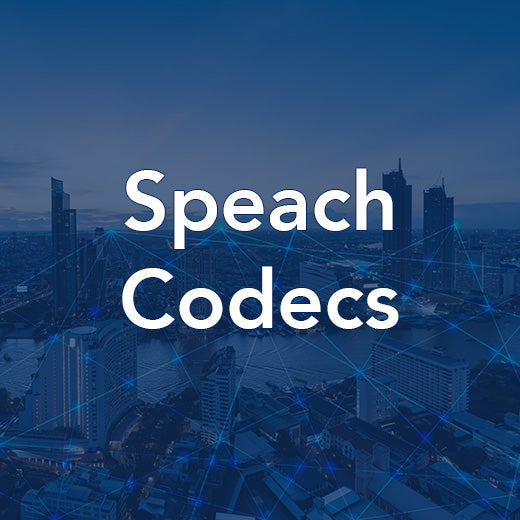
Speech Codecs
This course looks at different types of voice coder used in GSM and UMTS networks and then investigates its basic operation looking at CELP and VSELP. The course progresses to look at the functionality of the AMR voice codec and suggest its benefits and looks at Source Controlled Rate (SCR) operation finishes by looking at lost frame substitution. Our Speech Codecs Training Course delves into the world of voice coding in GSM and UMTS networks, exploring the basic operations of CELP and VSELP voice coders. Participants will gain an understanding of the AMR voice codec, its benefits, and Source Controlled Rate (SCR) operation, as well as lost frame substitution. This course is designed for individuals seeking to optimize voice performance in modern telecommunication networks through the use of different speech codecs. Ideal for those with an interest in mobile networks, this course requires no prerequisites and is suitable for anyone looking to enhance their knowledge of key voice coders used in telecommunications. Our expert instructors will guide participants through topics such as Linear Predictive Coders (LPCs), the GSM Vocoder, RPE, and the subjective division of codec parameters. By the end of this course, attendees will have a comprehensive understanding of voice coding technologies and their impact on network voice quality. Join usto expand your knowledge of speech codecs and their role in optimizing voice transmission in telecommunication networks. Gain valuable insights into the functionality of different voice coders, their benefits, and the operation of Source Controlled Rate (SCR) and lost frame substitution. Don't miss this opportunity to enhance your skills and stay ahead in the ever-evolving world of telecommunications. Who would benefit Attendees of this course should require an understanding of the key voice coders used in modern telecommunication networks, as well as their development and operation. This course will be of particular relevance to those interested in the performance of different speech codecs for optimising voice through the network. Prerequisites Delegates should have experience or an interest in mobile networks otherwise there are no prerequisites for this course. Topic Areas Include Voice Coding Linear Predictive Coders (LPCs) The GSM Vocoder Vocoder Action RPE Vocoder Output GSM Coder and Decoder Subjective Division of Codec Parameters Categorization The GSM Half-Rate Speech Coder Code Excited Linear Predictor (CELP) GSM Enhanced Full Rate Speech Coder Adaptive Multi-Rate (AMR) Voice Codec General Description Source Controlled Rate (SCR) Operation Lost Frame Substitution
POA: Private Course
-
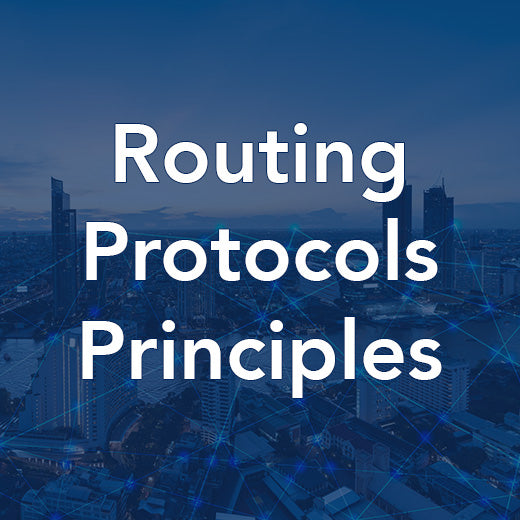
Routing Protocol Principles
In this 2-day online training course, participants will delve into the principles of routing protocols, focusing on Open Shortest Path First (OSPF) and Border Gateway Protocol (BGP). This course, with the code IP1306, is designed to provide a solid foundation in these two key routing protocols essential for network engineers. Ideal for network engineers seeking to enhance their knowledge of link state protocols like OSPF and the Path Vector Algorithm used in BGP, this course is a prerequisite for those considering diving into Multiprotocol Label Switching (MPLS). Participants are required to have a basic understanding of IP and networking, which can be obtained through attending Wray Castle's courses 'Internetworking, Ethernet LANs and VLANs Principles – IP1304' and 'IP Addressing and Internet Protocols Principles – IP1305'. Throughout the training, participants will cover a range of topic areas including the purpose of routing, route table management, routing traffic, interior and exterior gateway protocols, OSPF concepts and configuration, as well as Border Gateway Protocol Version 4 (BGP4) and MPLS VPN operation. By the end of the course, participants will have a comprehensive understanding of these routing protocols and be better equipped to handle complex network configurations. Topic Areas Include The purpose of routing The route table Routing traffic Interior and exterior gateway protocols Routing Information Protocol (RIP) v1 OSPF concepts OSPF configuration Interior (IGP) versus Exterior (EGP) routing Border Gateway Protocol Version 4 (BGP4) MPLS VPN operation
POA: Private Course
-
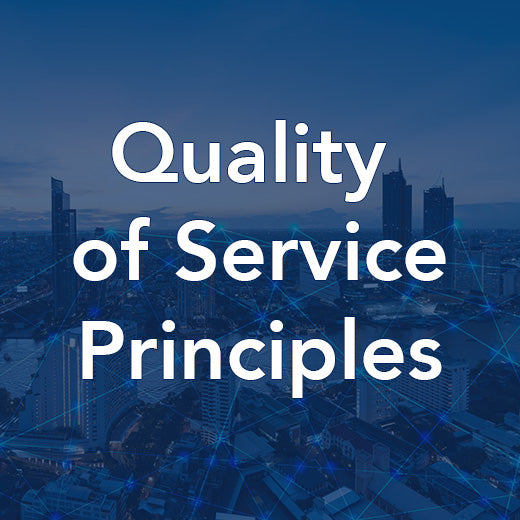
Quality of Service Principles
This 1-day Quality of Service Principles training course offered by Wray Castle provides a comprehensive overview of QoS in converged telecommunications networks. Participants will delve into the intricacies of QoS in ATM, MPLS, Ethernet, and IP networks, as well as explore the mechanisms used in VoIP and IPTV. This fast-paced course is ideal for engineers involved in planning, designing, implementing, supporting, and managing services over modern IP networks who need a solid understanding of QoS mechanisms. The course covers a range of topic areas including Traffic Management, IntServ and DiffServ Operation, Queue Management, Speech Quality, Video/Audio Quality, IP over ATM QoS, QoS in MPLS Networks, Ethernet Switch QoS Fundamentals, and Backhaul Traffic Profile. Participants are required to have a good understanding of IP networks, which can be obtained by attending Wray Castle's 'Routing Protocol Principles – IP1306' and 'Multi Protocol Label Switching – IP1307' courses. Enhance your knowledge and skills in QoS principles with this insightful training course. Improve your expertise in Quality of Service principles with Wray Castle's 1-day training course. Gain valuable insights into QoS mechanisms in converged telecommunications networks, including ATM, MPLS, Ethernet, and IP networks, as well as VoIP and IPTV. This course is designed for engineers involved in various aspects of modern IP networks who need to grasp the essentials of QoS. Explore topics such as Traffic Management, IntServ and DiffServ Operation, Queue Management, Speech Quality, Video/Audio Quality, IP over ATM QoS, QoS in MPLS Networks, Ethernet Switch QoS Fundamentals, and Backhaul Traffic Profile. Prior knowledge of IP networks is recommended, which can be acquired through attending Wray Castle's related courses. Elevate your skills and understanding of QoS principles with this informative training opportunity. Who would benefit All engineers involved in planning, designing, implementing, supporting and managing services over modern IP networks and need to understand the QoS mechanisms at their disposal. Prerequisites A good understanding of IP networks which can be obtained by attending our Wray Castle courses ‘Routing Protocol Principles – IP1306’ and our ‘Multi Protocol Label Switching – IP1307’. Topic Areas Include What is QoS? Traffic Management IntServ and DiffServ Operation Queue Management Speech Quality Video/Audio Quality IP over ATM QoS QoS in MPLS Networks Ethernet Switch QoS Fundamentals Backhaul Traffic Profile
POA: Private Course
-
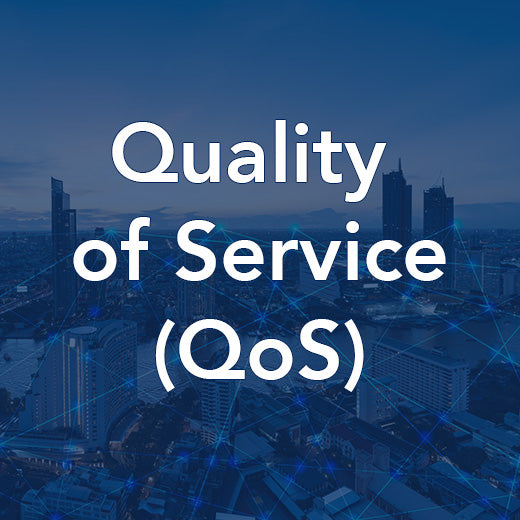
Quality of Service (QoS)
Telecommunication networks have evolved to offer a rich mix of multimedia and voice services. Many such services depend on the Internet Protocol (IP) for their operation and networks need to be equipped and engineered to cope with changed and changing requirements. The Quality of Service (QoS) offered to users is a vital aspect of IP network engineering and is pertinent to all IP network types. This detailed Wray Castle course provides network engineers with an in-depth study that covers all the principal aspects of IP QoS in part through theory but also by means of at least 9 practical exercises. The practical exercises will take the delegates through queue management techniques associated with switches and then routers. These exercises will include looking at QoS markings and then look at priority queueing, custom queueing, fair and weighted queueing as well as class-based routing. Exercises also cover RSVP and traffic shaping. In order to aid the exercises a set of pods will be used where each pod consists of 3 routers and 2 switches all the ancillary cables and a laptop will be provided although it is recommended that delegates bring their own laptop to aid with testing and so that they can take example traces away with them for further study after the course. Who would benefit This course has been designed for those needing an understanding of the QoS engineering approaches available in IP networks. It will benefit engineers involved in network planning, commissioning, network optimization, strategy determination, deployment, equipment design or manufacturing of network equipment. Some will find that this course will satisfy their complete requirements, while for others it will provide one element in a wider study based on primary material and other related Wray Castle courses. This course is also very useful for engineers and scientists working in areas related to IP network operation. This includes those working within service delivery, service developers, billing, Government security or forensic work, technical support staff and those in technical management roles. Prerequisites A thorough foundation in the practices of IP routing would be highly beneficial before attending this course. Topic Areas Include QoS Principles Packet Filtering for QoS QoS approaches in IP Networks IntServ DiffServ Queue Management Router QoS Markings Priority Queueing Custom Queueing Fair Queueing Weighted Fair Queueing Class-based Routing Traffic Shaping
POA: Private Course
-
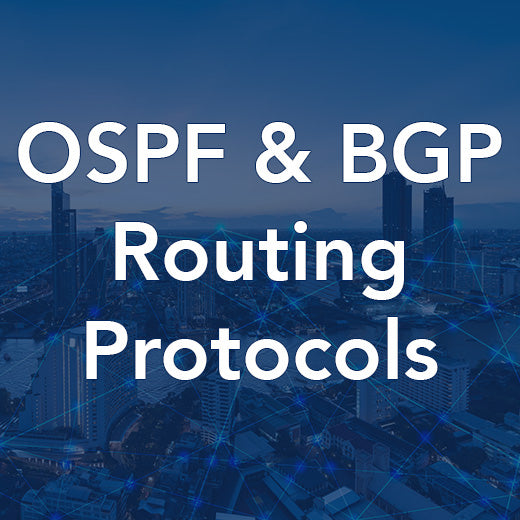
OSPF and BGP Routing Protocols
In this 2-day OSPF and BGP Routing Protocols training course, engineers will gain a practical understanding of OSPF and BGP through hands-on configuration of routers and switches. Participants will also learn how to investigate databases and routing tables to optimize network performance. This course is ideal for engineers who are transitioning into IP networking and need to have a solid operational understanding of devices like Ethernet switches and IP routers. Participants should have a basic knowledge of Ethernet switching and routing principles, including OSPF, as well as a good grasp of IP addressing. If you need to brush up on these prerequisites, consider attending our Wray Castle courses on Internetworking, Ethernet LANs and VLANs Principles, IP Addressing and Internet Protocols Principles, and Routing Protocol Principles. Topics covered in this training include the purpose of routing, equal cost multi-path routing, OSPF areas and metrics, OSPF database management, troubleshooting OSPF, BGP version 4, BGP redistribution, BGP path attributes, BGP filtering, and troubleshooting BGP. Join us for this comprehensive course to enhance your skills in OSPF and BGP routing protocols. Who would benefit Engineers who are moving into IP and need to have an operational understanding of typical devices such as Ethernet Switches and IP routers. Prerequisites A basic understanding of Ethernet switching and basics of routing such as OSPF together with a good understanding of IP addressing which can be obtained by attending our Wray Castle courses: ‘Internetworking, Ethernet LANs and VLANs Principles – IP1304’ and ‘IP Addressing and Internet Protocols Principles – IP1305’ and ‘Routing Protocol Principles – IP1306’. Topic Areas Include The Purpose of Routing The Routing Table Equal Cost Multi Path Redistribution OSPF Areas OSPF Metrics OSPF Database Troubleshooting OSPF OSPF Exercises Border Gateway Protocol Version 4 (BGP4) BGP redistribution BGP Path Attributes BGP Filtering BGP Troubleshooting BGP Exercise
POA: Private Course
-

Multi Protocol Label Switching
Our Multi Protocol Label Switching (MPLS) training course is designed to provide a comprehensive introduction to MPLS, covering topics such as MPLS Label Switched Paths (LSPs) and MPLS Virtual Private Network (VPN) connections. This 1-day course is ideal for engineers working with MPLS in various applications, from IP VPNs to GMPLS in transmission networks. Participants will gain a solid understanding of MPLS, including its motivation, applications, packet forwarding, and architecture of MPLS-based IP-VPNs. The course also covers topics such as Forward Equivalence Class (FEC), MPLS label operations, Label Distribution Protocol (LDP), Virtual Private Networks (VPN), and MP-BGP configuration. Prerequisites for this course include a good understanding of IP networking and familiarity with OSPF and BGP, which can be obtained by attending our ‘Routing Protocol Principles – IP1306’ course. Join us for this interactive training session to enhance your knowledge and skills in Multi Protocol Label Switching. Who would benefit Engineers are finding MPLS is a variety of different applications from IP VPNs, through to GMPLS in transmission networks. As so this 1-day course will provide an excellent introduction to the topic. Prerequisites A good understanding of IP networking is essential as well as an understanding of OSPF and BGP which can be obtained from attending our ‘Routing Protocol Principles – IP1306’ course. Topic Areas Include Motivation for MPLS MPLS applications view MPLS packet forwarding Architecture of MPLS-based IP-VPNs Forward Equivalence Class (FEC) MPLS label operations Special case labels Label Distribution Protocol (LDP) Virtual Private Networks (VPN) MP-BGP configuration
POA: Private Course
-
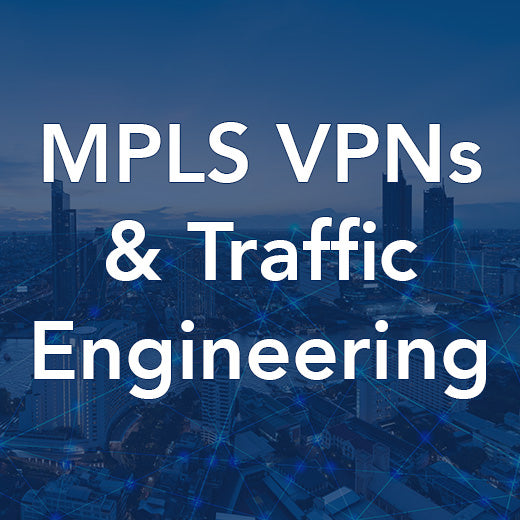
MPLS VPNs and Traffic Engineering
This 2-day MPLS VPNs and Traffic Engineering training course offered by Wray Castle provides a practical and in-depth look at Multi Protocol Label Switching (MPLS) technology. From understanding Label Switched Paths to configuring Virtual Private Network (VPN) connections and exploring MPLS Traffic Engineering, this course covers all the essential aspects of MPLS implementation in networks. Engineers who work with MPLS VPNs or Traffic Engineering services will greatly benefit from this course, gaining a comprehensive understanding of how MPLS is configured and operated in real-world networks. Participants are required to have a good grounding in MPLS and VPN principles, which can be obtained by attending Wray Castle's course on 'Multi Protocol Label Switching'. Topics covered in this course include VPN (Virtual Private Networks), MPLS VPN operation, MP-BGP configuration, building different VPN types using route targets, MPLS traffic engineering, MPLS-TE trunk attributes, and fast restoration of an LSP using RSVP-TE. By the end of the training, participants will have the knowledge and skills to effectively configure and manage MPLS VPNs and Traffic Engineering in their networks. Who would benefit Engineers who would benefit from a practical understanding of how MPLS is configured in networks. Especially those that have to work with MPLS VPNs or Traffic Engineering services. Prerequisites A good grounding in MPLS and VPN principles as obtained by attending our Wray Castle course ‘Multi Protocol Label Switching – IP1307’. Topic Areas Include VPN (Virtual Private Networks) MPLS-based IP-VPN motivation MPLS VPN operation Configuration of VPN sites MP-BGP configuration MP-BGP updates Building different VPN types using route targets Route reflector MPLS traffic engineering MPLS-TE trunk attributes MPLS-TE basic operations Fast restoration of an LSP using RSVP-TE
POA: Private Course
-
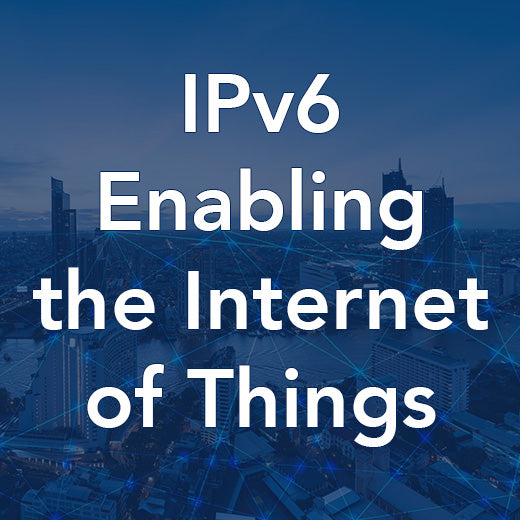
IPv6 Overview: Enabling the Internet of Things (IoT)
This one-day course based on real-life deployments provides a brief look at IPv6 and in particular how this will apply to telecommunications markets from the User Equipment up through the Service Providers networks and out into the internet. All the essential topics, such as IPv6’s new addressing and packet formats; the variety of ways that IP addresses can be allocated to devices and the relevant standards bodies are covered, however, we also look at the new IPv6 messages and ICMPv6 in particular. The course ends with a review of the deployment and transition states that IPv4 and IPv6 networks are likely to evolve. This one-day IPv6 overview training course is designed to provide a comprehensive understanding of IPv6 and its implications for telecommunications markets. From User Equipment to Service Providers networks and beyond, participants will gain insight into IPv6 addressing, packet formats, allocation methods, standards bodies, and deployment strategies. The course also covers new IPv6 messages, ICMPv6, and the transition states of IPv4 and IPv6 networks. Ideal for engineering and technical management staff in both fixed and mobile networks, this course requires no specific prerequisites, although familiarity with IPv4 and related protocols (TCP, UDP, etc.) is beneficial. Participants will explore topics such as the need for IPv6, IPv4 challenges, driving change in the Internet, IPv6 specifications and standards, packet structure, node configuration, functionality, QoS, routing protocols, security features, adoption in the backbone, 3GPP integration, LTE PDN connection IP address allocation, and future developments in IPv6 technology. Who would benefit This course is suitable for all engineering and technical management staff that needs an overview of IPv6 and covers requirements for both fixed and mobile networks. Prerequisites No specific prerequisites are needed although an understating of IPv4 and its related protocol ecosystem (TCP; UDP; etc.) would be of benefit. Topic Areas Include Need for IPv6 IPv4 problems and workarounds Driving change in the Internet IPv6 specifications and standards IPv6 packet structure Minimum node configuration Overview of IPv6 functionality IPv6 packet transmission IPv6 QoS IPv6 routing protocols IPv6 security features Adoption of IPv6 in the backbone IPv6 and 3GPP LTE PDN connection IP address allocation IPv6 and the Internet Further developments
POA: Private Course
-
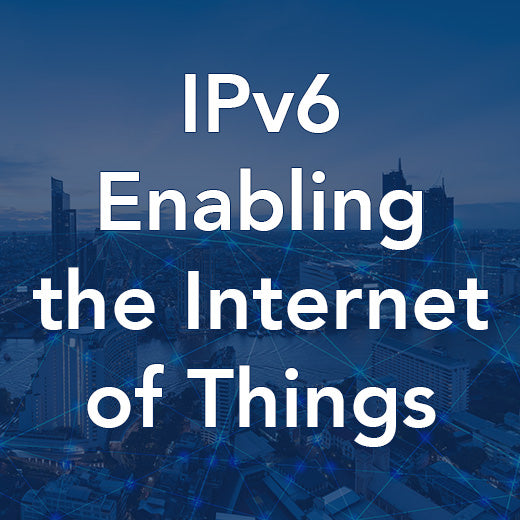
IPv6 Enabling the Internet of Things
This 3-day course provides a detailed look at IPv6 and in particular how this will apply to telecommunications markets from the User Equipment up through the Service Providers networks and out into the internet. All the essential topics, such as IPv6’s new addressing and packet formats; the variety of ways that IP addresses can be allocated to devices and the relevant standards bodies are covered, however, we also look at the new IPv6 messages and ICMPv6 in particular, as well as investigating the numerous deployment options from Dual Stacking through tunnelling techniques and address translation methods. The course ends with a review of the deployment and transition states that IPv4 and IPv6 networks are likely to evolve. In today's rapidly evolving telecommunications landscape, the transition to IPv6 is becoming increasingly crucial. Our 3-day IPv6 Enabling the Internet of Things training course delves deep into the world of IPv6, exploring its applications in telecommunications markets from end-user devices to service provider networks and beyond. Covering essential topics such as IPv6 addressing, packet formats, allocation methods, and relevant standards bodies, this course also delves into advanced concepts like IPv6 messages and ICMPv6, as well as deployment options including Dual Stacking, tunnelling techniques, and address translation methods. Through a series of real-world examples and hands-on labs, delegates will gain practical experience in key techniques such as address translation, IPv6 tunnelling, and NAT64. This course is ideal for IP design, planning, and support specialists in the fixed or mobile telecommunications sector, including design, planning, and operations staff. A basic understanding of IPv4 and related protocols (TCP, UDP, etc.) is recommended as a prerequisite for this course. Don't miss this opportunity to stay ahead of the curve and master the intricacies of IPv6 in today's interconnected world. Who would benefit Those people who specialise in IP design planning, implementation or support would benefit strongly from attending this course, including design, planning and operations staff. This course is aimed specifically at people working for fixed or mobile telecommunications. Prerequisites An understating of IPv4 and its related protocol ecosystem (TCP; UDP; etc.) would be of benefit. Topic Areas Include The need for IPv6 Packet structure IPv6 addressing Address assignment IPv6 functionality Transition and deployment Adoption and development IPv6 exercises
POA: Private Course
-
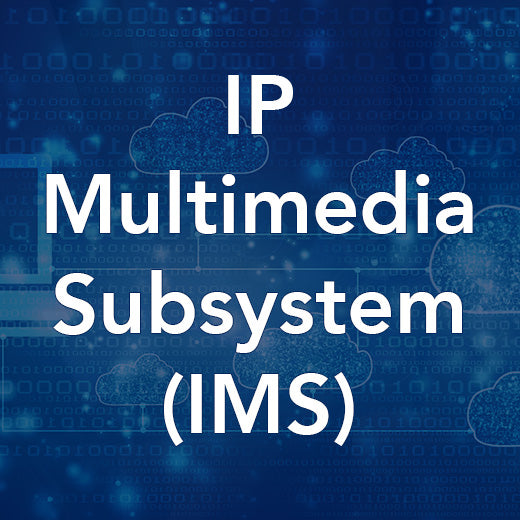
IP Multimedia Subsystem (IMS)
This course provides an understanding of the IP Multimedia Subsystem’s (IMS) role in Next Generation Networking. It provides a detailed description of the IMS architecture including security, charging and Policy and Charging Control (PCC). Additionally it identifies the main protocols associated with IMS including SIP, Diameter and SDP and analyzes their role in the IMS registration and session control procedures. It also provides a brief look at some of the applications enabled by the IMS. Our IP Multimedia Subsystem (IMS) training course is designed to provide a comprehensive understanding of the IMS architecture and its role in Next Generation Networking. Over the course of 2 days participants will delve into the intricacies of IMS, including security, charging, and Policy and Charging Control (PCC). This course also covers the main protocols associated with IMS, such as SIP, Diameter, and SDP, and analyzes their role in registration and session control procedures. Ideal for individuals seeking a thorough understanding of IMS architecture, interfaces, and procedures, this course is perfect for telecom professionals looking to enhance their knowledge and skills in this crucial area. Participants should have a basic understanding of SIP and packet-switched domains in LTE, GPRS, and UMTS networks to fully benefit from this training. Topics covered in this course include IMS framework, protocols for IMS, CSCFs and HSS roles, IMS access mechanisms, application service environment, security aspects, charging, and much more. By the end of the training, participants will have a solid grasp of IMS and its applications in the telecom industry. Who would benefit Those requiring a full understanding of the architecture, interfaces and procedures of the IMS. Prerequisites An understanding of SIP and the packet-switched domains in LTE, GPRS and UMTS networks and their functionality is an advantage. Topic Areas Include What is the IMS and why do we need it? Introduction to the IMS Framework Protocols for IMS IMS architecture, interfaces, operation and procedures Roles of the CSCFs and HSS including AAA procedures IMS access mechanisms and IP address allocation and P-CSCF discovery User subscription profiles, User Identities and Initial Filter Criteria Implicit Registration Sets Application Service (AS) environment Interaction between the CSCFs and the AS environment Circuit Switched interworking The Media Resource Function (MRF) Border Control Functions and gateways IMS Security aspects Online and Offline Charging Policy Control and Charging Analysis of SIP Registration, Originating and Terminating Session Control includes some example Wireshark analysis Emergency call handling IMS Applications
POA: Private Course
-
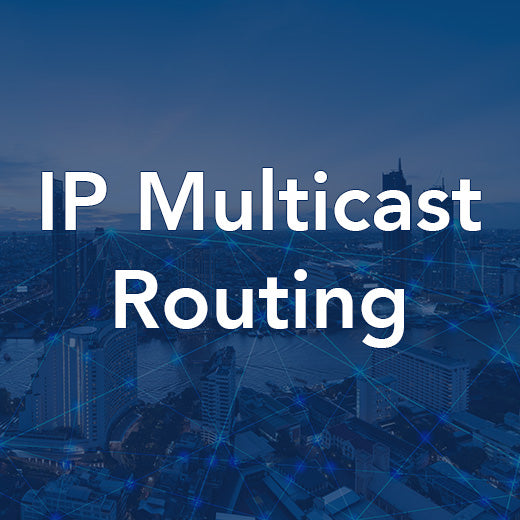
IP Multicast Routing
This is IP multicasting practically carrying an IPTV service using the Protocol Independent Multicast (PIM) and Internet Group Management Protocol (IGMP) protocols. IGMP and PIM are introduced and then PIM Sparse Mode and Source Specific Mode is tested practically using labs. Join our 2-day IP Multicast Routing training course to gain a comprehensive understanding of Protocol Independent Multicast (PIM) and Internet Group Management Protocol (IGMP) protocols. Through practical labs, you will learn how to implement PIM Sparse Mode and Source Specific Mode to deliver IPTV services effectively. This course is ideal for engineers venturing into the realm of IPTV and converged services, providing you with the necessary skills to navigate the complexities of IP multicasting. Prior knowledge of IP protocols, particularly link state protocols like OSPF, is recommended for this course. If you need to brush up on your understanding of these protocols, consider attending our 'OSPF and BGP Routing Protocols' course before diving into IP multicasting. With a focus on hands-on learning, our training sessions will equip you with the expertise needed to configure multicast routing tables, understand IPv4 and IPv6 multicast addressing, and implement multicast services efficiently. Expand your knowledge of IP multicasting and enhance your skill set with our IP Multicast Routing training course. Who would benefit Engineers particularly those entering the world of IPTV and converged services generally would benefit from this Wray Castle course. Prerequisites A good understanding of IP protocols especially link state protocols such as OSPF which can be gained by attending our Wray Castle course ‘OSPF and BGP Routing Protocols – IP1310’ Topic Areas Include What is IP Multicast? IPv4 Multicast Addressing Multicast vs Unicast or Broadcast Routing Multicast Routing Tables Multicast in LANs Internet Group Management Protocol (IGMP) Protocol Independent Multicast (PIM) Multicast Services IPv6 Multicast ICMPv6
POA: Private Course
-
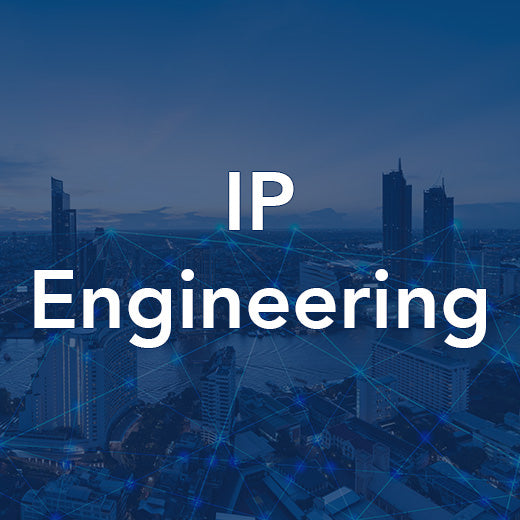
IP Engineering
This course delivers a detailed overview of Internet Protocol networks. Delivering an understanding of Engineering techniques, as well as applications, protocols and switching methods, it enables delegates to work confidently in the IP environment. Other topics explored include QoS, security, VPNS and Multimedia over IP. This IP Engineering training course is designed to provide a comprehensive understanding of Internet Protocol networks, covering engineering techniques, applications, protocols, and switching methods. Participants will gain the knowledge and skills needed to confidently work in the IP environment, with topics including QoS, security, VPNS, and Multimedia over IP. Ideal for those looking to understand how IP networks are designed and implemented, this course is suitable for individuals with some knowledge or experience of packet-switched data network operation and Internet technology. By enrolling in this course, participants will explore a range of topic areas including the background to the Internet and ISPs, IPv6, DNS, MPLS, access services, routing in IP networks, IP QoS technologies, security engineering, IP VPNs, and IP multimedia services. Gain the skills and expertise needed to succeed in the dynamic field of IP engineering with this comprehensive training program. Who would benefit Those needing to understand how IP networks are designed and implemented. Prerequisites Some knowledge or experience of packet-switched data network operation and Internet technology is beneficial. Topic Areas Include Background to the Internet and ISPs The Data Link, IP, Transport and Application layers IPv6 The Domain Name System (DNS) Introduction to MPLS Access services E-mail services and web hosting Name servers Service Provider Network architectures Peering Routing in IP networks Overview of OSPF and BGP4 IP QoS technologies Security engineering IP VPNs IP multimedia services
POA: Private Course
-
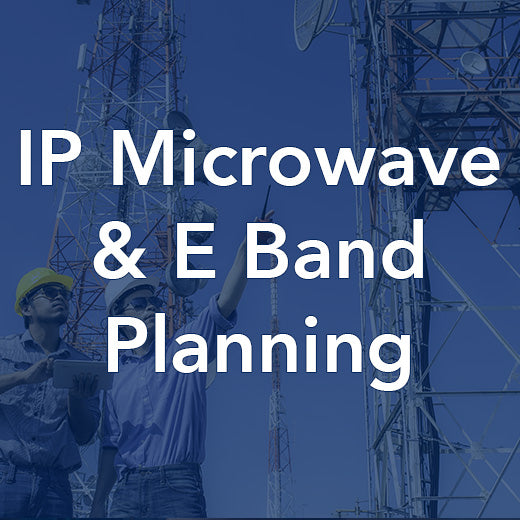
IP Microwave and E Band Planning
This course introduces some of the key techniques used in the latest products related to microwave radio. Topics covered include adaptive modulation; radio link protection and bonding; fixed link MIMO; Internet Protocol (IP) radio; Ethernet QoS management; header compression and split mount; and full outdoor configuration. The course looks at how vendors and network planners are addressing the issues associated with upgrading from legacy microwave technologies (PDH/SDH) to full IP. The emerging E-band technology is discussed in detail, with a particular emphasis on planning E-band links and the technical specifications of a range of equipment from the main vendors. In this comprehensive IP Microwave and E-Band Planning Training Course, participants will delve into the latest techniques and technologies in the field of microwave radio. The course covers a wide range of topics including adaptive modulation, radio link protection, Ethernet QoS management, and the transition from legacy microwave technologies to full IP. Participants will also gain valuable insights into E-band technology, with a focus on planning E-band links and understanding the technical specifications of equipment from leading vendors. This course is ideal for experienced transmission and backhaul engineers, as well as system architects looking to deepen their understanding of fixed broadband radio. A good knowledge of radio principles and familiarity with IP technologies are recommended prerequisites for this training. By the end of the course, participants will have a solid grasp of Ethernet radio, spectrum and regulation, technological developments in fixed link radio, planning IP and E-Band radio links, and timing and synchronization. Who would benefit This course is intended for experienced transmission and backhaul engineers and system architects requiring an in-depth understanding of the evolution of fixed broadband radio. Prerequisites A good knowledge of radio principles would be desirable, as well as an appreciation of IP technologies. Topic Areas Include Ethernet Radio Spectrum and Regulation Technological Developments in Fixed Link radio Planning IP and E-Band Radio Links Timing and Synchronization
POA: Private Course
-
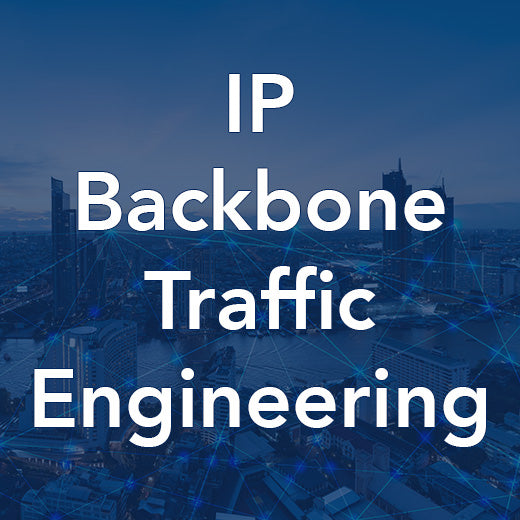
IP Backbone Traffic Engineering
This is a detailed course examining the complexities of IP Backbone traffic engineering techniques. ATM and MPLS are explored as well as looking to the future of traffic engineering. This 2-day IP Backbone Traffic Engineering training course delves into the intricacies of IP backbone traffic engineering techniques, exploring ATM and MPLS while also looking towards the future of traffic engineering. Designed for those looking to gain a comprehensive understanding of backbone traffic engineering for IP networks, this course covers a range of topic areas including traffic engineering overview, techniques, Layer 3 traffic engineering, OSPF and BGP architecture and operation, as well as traffic engineering using OSPF and BGP4. Ideal for individuals with experience in IP engineering and a solid grasp of packet-switched data networks, TCP/IP principles, and ATM, this course offers valuable insights into ATM traffic engineering, IP-over-ATM traffic engineering, MPLS traffic engineering, integrated MPLS-TE approach, the evolution of ATM to MPLS core networks, and Generalized MPLS. Who would benefit Those needing to understand the principles of backbone traffic engineering for IP networks. Prerequisites Experience of IP engineering and an understanding of packet-switched data networks, TCP/IP principles and ATM are beneficial. Topic Areas Include Traffic engineering overview Traffic engineering techniques Layer 3 traffic engineering OSPF architecture and operation BGP and BGP4 architecture and operation Traffic engineering using OSPF and BGP4 ATM traffic engineering IP-over-ATM traffic engineering MPLS traffic engineering Integrated MPLS-TE approach The evolution of ATM to MPLS core networks Generalized MPLS
POA: Private Course
-
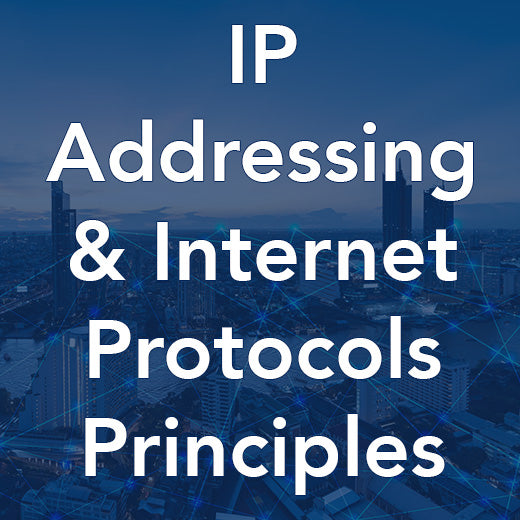
IP Addressing and Internet Protocols Principles
A course designed to give the new IP engineer a grounding in IPv4 Addressing whilst also exploring the typical routing protocols and essential components that will be encountered. The course also looks inside a typical router and explains the workings of the routing or forwarding table. In today's digital age, understanding IP addressing and internet protocols is essential for any engineer entering the world of networking. Wray Castle's IP Addressing and Internet Protocols Principles Training Course, with the course code IP1305, is designed to provide a comprehensive introduction to IPv4 addressing and routing protocols. This course delves into the inner workings of routers, explaining routing tables and essential components that engineers will encounter in their IP-centric roles. Ideal for engineers transitioning into an IP-centric environment, this course covers topics such as subnet masks, TCP/IP suite, IPv6, DHCP, DNS, and routing principles. Whether you need to interpret router outputs or understand the fundamentals of IPv4 addressing, this training course will equip you with the knowledge and skills necessary to navigate the complexities of internet protocols. Prior knowledge of internetworking, Ethernet LANs, and VLANs principles is recommended as a prerequisite for this course. Enhance your understanding of internet protocols and boost your engineering capabilities with Wray Castle's IP Addressing and Internet Protocols Principles Training Course. Who would benefit All engineers who are moving into an IP centric world and need a grounding in the workings of IPv4; especially those that need a grounding in IPv4 addressing and subnet masks as well as needing to interpret output from a typical router. Prerequisites Internetworking, Ethernet LANs and VLANs Principles or equivalent prior knowledge of LANs and Ethernet switching. Topic Areas Include The purpose of routing Building a route table The TCP/IP suite The IP addressing scheme Subnet mask and determination of a packet’s destination IPv6 Dynamic Host Configuration Protocol (DHCP) Domain Name System (DNS) Routing principles Interior and exterior routing
POA: Private Course
-
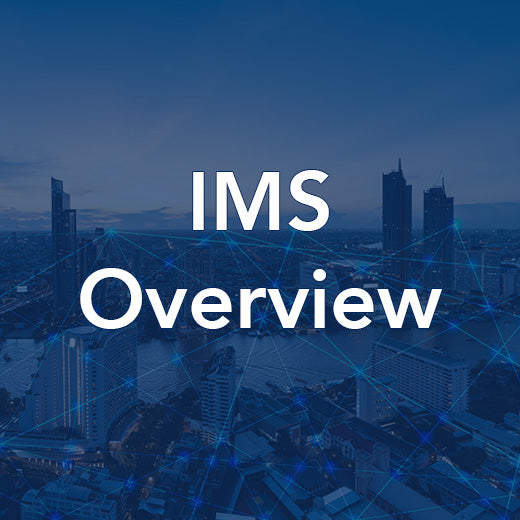
IMS Overview
Our IMS Overview Training Course is designed to provide participants with a solid foundational understanding of the IP Multimedia Subsystem (IMS) and its role in Next Generation Networking. This course offers an overview of the IMS architecture, including security, charging, and Policy and Charging Control (PCC), as well as an analysis of the main protocols associated with the IMS. Participants will also gain insights into IMS registration and session control procedures, along with a brief overview of the applications enabled by the IMS. This course serves as an ideal introduction to the IMS for those who do not require the in-depth coverage provided in our 3-day IMS and SIP course. Ideal for individuals looking to enhance their understanding of the IMS architecture and operation, particularly in relation to VoLTE, as well as those seeking an introduction to SIP, this course covers a range of topic areas. Participants will explore concepts such as the IMS framework, protocols used by the IMS, CSCFs and HSS roles, SIP basics, IMS architecture, online and offline charging, policy control and charging, and more. By the end of this training, participants will have a comprehensive understanding of the IMS and its key components, making them well-equipped to navigate the evolving landscape of Next Generation Networking. Who would benefit This session is for those aiming to better understand the architecture and operation of the IMS, potentially in relation to VoLTE, as well as those looking for an introduction to SIP. Prerequisites An understanding of packet switched domains in LTE, GPRS and UMTS networks and their functionality is an advantage. Topic Areas Include What is the IMS and why do we need it? The IMS Framework simplified Protocols used by the IMS IMS architecture, interfaces, operation and procedures Roles of the CSCFs and HSS What is the Session initiation Protocol (SIP)? SIP User location and Session Control Basic Concepts Session Establishment using a SIP Architecture SIP Routing Introduction to the IMS Architecture The CSCFs’ Roaming and Non-Roaming Architecture Call Session Control Functions (CSCFs) Circuit Switched interworking The Media Resource Function (MRF) Introduction to Border Control IMS Security aspects Online and Offline Charging Policy Control and Charging (PCC) The role of SIP, SDP and RTP in the IMS IMS Registration Principles and Authentication Voice over LTE (VoLTE) Emergency Call Architecture and Procedure Rich Communication Suite (RCS)
POA: Private Course
-
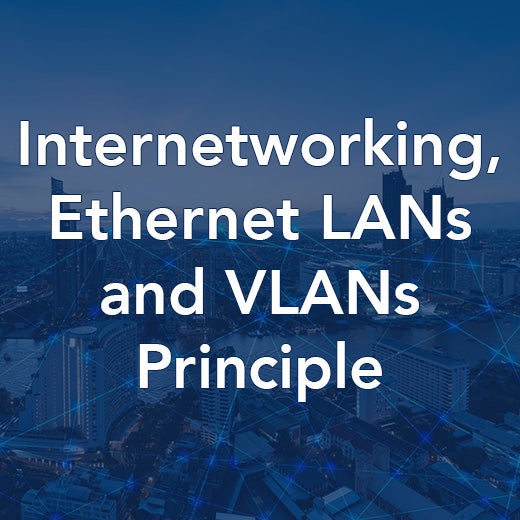
Internetworking, Ethernet LANs and VLANs Principles
In this comprehensive Internetworking Ethernet LANs and VLANs Principles training course, participants will gain a solid understanding of IP networking, with a specific focus on local LAN connections. The course delves into the intricacies of Ethernet technology, Switching, and Virtual LANs (VLANs), providing a well-rounded education on these fundamental networking concepts. Ideal for network engineers involved in planning, design, implementation, or support, as well as those in management roles, this course serves as a valuable introduction to LANs. It also serves as a stepping stone for those looking to expand their knowledge to include broader implementations of Ethernet in Metro Ethernet or Carrier Ethernet environments. Participants with an interest in IP networks and a basic understanding of IP networking terminology are well-suited for this course. Through a series of topic areas, including LANs, Layer 2 Switching, Ethernet Standards, MAC Addresses, and Virtual LANs (VLANs), attendees will leave with a comprehensive understanding of Ethernet LANs and VLANs principles. Who would benefit This course is aimed at any network engineers in planning, design, implementation or support as well as management roles. It provides the right level of introduction to the world of LANs which can also be a stepping stone to the broader implementations of Ethernet in the Metro Ethernet or Carrier Ethernet worlds. Prerequisites The only prerequisite would be an interest in IP networks and a basic understanding of some of the IP networking terminology. Topic Areas Include LANs, MANs and WANs The Link Layer Protocols Layer 2 Switching Ethernet Network Elements Ethernet Standards MAC Addresses LAN Cabling Combining Layer 2 and Layer 3 Systems STP Topology Spanning Tree Operation Virtual LANs (VLANs)
POA: Private Course
-
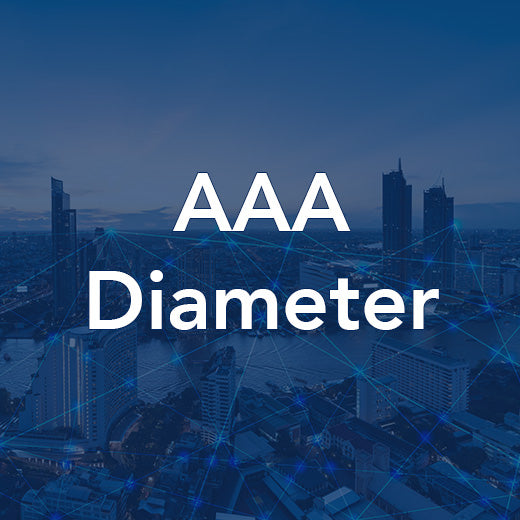
AAA Diameter
Course Summary RADIUS is used essentially to introduce the topic and provide a progression towards Diameter with the main emphasis being on the newer Diameter protocol. The course will also delve into the deployment of Diameter as seen by modern telecoms in particular. After looking at Diameter in detail the course will review how it is being implemented into 3GPP’s IMS and LTE network architectures. Our AAA Diameter Training Course is a comprehensive program designed to provide engineers working in equipment manufacturing and network operations with a deep understanding of Diameter protocol. Over 2 days and 4 live online sessions, participants will delve into the intricacies of Diameter, its deployment in modern telecom networks, and its integration into 3GPP's IMS and LTE architectures. The course covers a range of topic areas, including an introduction to RADIUS and Diameter, Diameter transports, the Diameter base protocol and entities, Diameter operations and extensibility, Diameter accounting protocol, Diameter security, and its implementation in IMS and the Evolved Packet Core. Participants will gain valuable insights into the latest advancements in Diameter technology and its practical applications in the telecom industry. With no major prerequisites required, this course is ideal for professionals looking to enhance their knowledge of modern telecommunications networks and stay ahead in the rapidly evolving telecom landscape. Join us for this in-depth training program and take your expertise in Diameter protocol to the next level. Who would benefit This course is primarily designed for engineers working for equipment manufacturers and for network operators who are involved in equipment design, manufacturing, network planning, network optimization, strategy determination and deployment of RADIUS and Diameter technologies. Prerequisites There are no major prerequisites, but to maximise the benefits of this course a good understanding of the architecture of modern telecommunications networks including IMS and LTE would be advantageous as well as a reasonable understanding of the MAP protocol and the messages used to support a mobile device for registration and location updates. A grasp of SCTP as used in SIGTRAN would also be beneficial. Topic Areas Include Introduction to RADIUS and Diameter Diameter Transports The Diameter Base Protocol and Entities Investigating Diameter Base Protocol Diameter Operations and Extensibility Diameter Accounting Protocol Diameter Security Diameter in IMS Diameter in the Evolved Packet Core
POA: Private Course
-
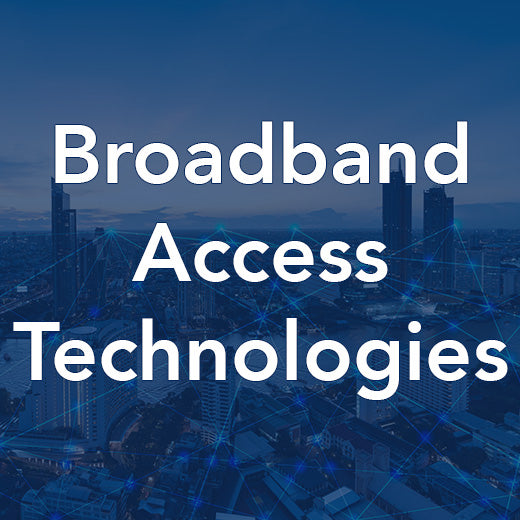
Broadband Access Technologies
Course Summary This course introduces delegates to the broadband technologies and access methods that are available to fixed- and mobile-network operators. Topics covered include ISPs, ADSL, ADSL2, DSL, VDSL and fibre-optic networks, as well as WiMAX, Wi-Fi, UMTS and LTE. The learning is underpinned by group exercises. Broadband access technologies are constantly evolving, and staying up-to-date with the latest advancements is crucial for network operators. Our Broadband Access Technologies Training Course is designed to provide delegates with a comprehensive understanding of various broadband technologies and access methods used in both fixed and mobile networks. From ISPs and DSL to fibre-optic networks, WiMAX, Wi-Fi, UMTS, and LTE, this course covers a wide range of topics essential for technical and semi-technical management staff in the telecommunications industry. Participants will delve into the broadband market, DSL technologies, fibre optic systems, fixed wireless access, satellite broadband, and much more. Group exercises are included to reinforce learning and provide practical insights into broadband deployment strategies. While a basic understanding of digital communications techniques is beneficial, it is not a prerequisite for this course. Equip yourself with the knowledge and skills needed to navigate the complex world of broadband access technologies by enrolling in our training course. Stay ahead of the curve and gain a competitive edge in the telecommunications industry with Wray Castle's expert-led training sessions. Who would benefit Technical and semi-technical management staff requiring an overview of the technologies and techniques employed by wired and wireless broadband access systems. Prerequisites A basic understanding of digital communications techniques would be an advantage, but is not essential. Topic Areas Include The broadband market DSL – technologies, architecture, access, backhaul Powerline broadband Fibre optic and cable systems Fibre to the home and cabinet Fixed wireless access systems Satellite broadband and high altitude platforms Wi-Fi hotspot, wide area and ‘municipal’ networks UMTS fixed and 3G mobile broadband Fixed and Mobile WiMAX LTE and UMB Broadband deployment strategies Includes group exercises.
POA: Private Course














































